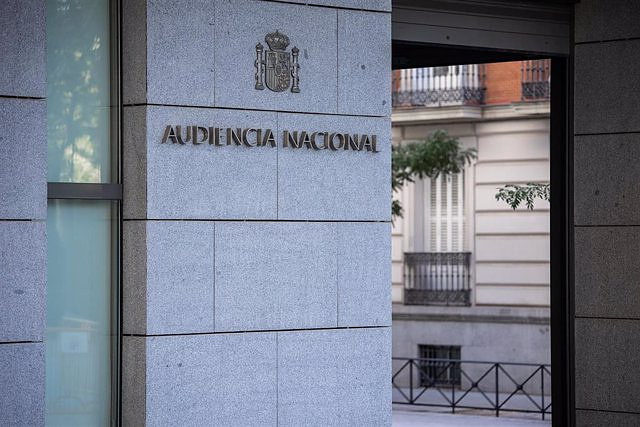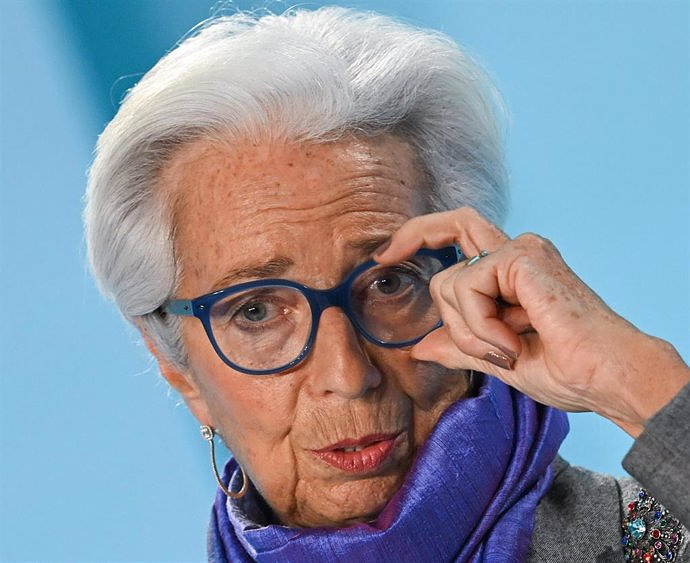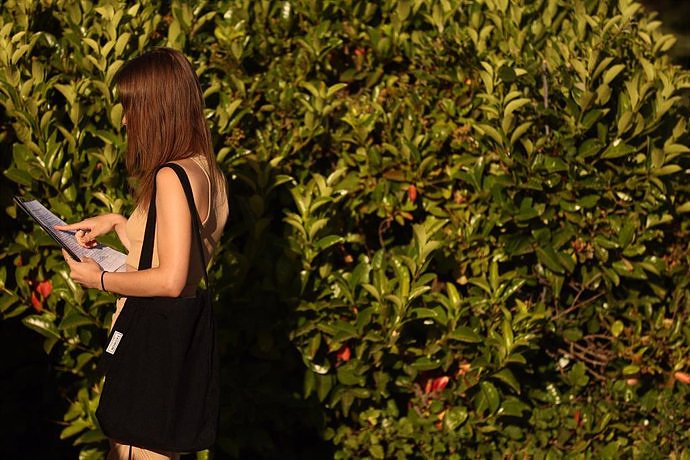MADRID, 8 Ene. (EUROPA PRESS) -
The National Court (AN) will study this Wednesday the extradition to Uruguay of Carlos S.F., who was a doctor of the Mechanized Cavalry Regiment number 6 and who, according to the South American country, would have participated in torture between 1972 and 1975, within the framework of the Uruguayan dictatorship.
In the document by which the Prosecutor's Office is interested in his handing over, collected by Europa Press, the defendant is listed as an adviser to the interrogators of the Anti-subversive Operations Coordinating Body (OCOA) who, through physical coercion, would have obtained testimonies from the detainees in the framework of an operation against the PCR.
"As a consequence of the confessions obtained through the use of violence, sentences were obtained from those interrogated and from third parties," explains the Public Ministry, which indicates that, according to the documentation sent by Uruguay, the number of those affected by torture would be nine. .
One of them "stated that when she was detained in Regiment number 6 she was always hooded." Her claimant would have assured her that she was not pregnant even though she was and would have made her sign a document threatening that if he did not do so, he would torture her again.
Stripped and tied by the ankles with wire, they allegedly applied "the cattle prod and threatened to burn her with acid or shoot her." "As a consequence of the torture, she suffered the beginning of gastritis, she has amenorrhea and nightmares," describes the Prosecutor's Office.
Another of those allegedly tortured explained that when he was detained they beat him, handcuffed him, hooded him and applied an electric baton to him while his legs and hands were handcuffed, applying electric shocks while wet. According to his account, the defendant was present at those sessions and advised the material authors.
A person affected by the alleged torture who would have been subjected to what is known as the "dry submarine" -- a plastic hood tightened around the neck -- also pointed to the defendant. Another tortured woman, for her part, described how she was tortured in front of her husband and how her pregnancy was used as an element of psychological coercion.
The Prosecutor's Office explains that the facts constitute, according to Uruguayan legislation, a crime against humanity, a crime of abuse of authority against detainees, a crime of serious injuries and a crime of deprivation of liberty.

 Exploring Cardano: Inner Workings and Advantages of this Cryptocurrency
Exploring Cardano: Inner Workings and Advantages of this Cryptocurrency Seville.- Economy.- Innova.- STSA inaugurates its new painting and sealing hangar in San Pablo, for 18 million
Seville.- Economy.- Innova.- STSA inaugurates its new painting and sealing hangar in San Pablo, for 18 million Innova.- More than 300 volunteers join the Andalucía Compromiso Digital network in one month to facilitate access to ICT
Innova.- More than 300 volunteers join the Andalucía Compromiso Digital network in one month to facilitate access to ICT Innova.-AMP.- Ayesa acquires 51% of Sadiel, which will create new technological engineering products and expand markets
Innova.-AMP.- Ayesa acquires 51% of Sadiel, which will create new technological engineering products and expand markets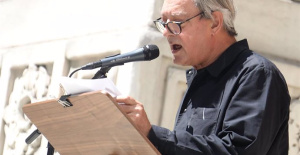 Prominent American writer Paul Auster dies at 77 from lung cancer
Prominent American writer Paul Auster dies at 77 from lung cancer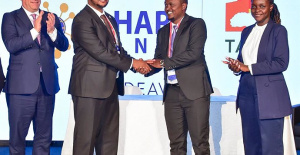 RELEASE: Rendeavor Expands High-Speed Internet Access to Local Communities Around Tatu, Kenya
RELEASE: Rendeavor Expands High-Speed Internet Access to Local Communities Around Tatu, Kenya Real Madrid saves a draw in Munich and will appeal again to the Bernabéu
Real Madrid saves a draw in Munich and will appeal again to the Bernabéu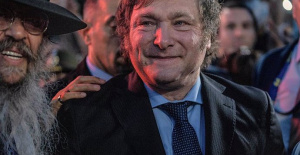 The Congress of Argentina approves the omnibus law that allows the privatization of some public companies
The Congress of Argentina approves the omnibus law that allows the privatization of some public companies How Blockchain in being used to shape the future
How Blockchain in being used to shape the future Not just BTC and ETH: Here Are Some More Interesting Coins Worth Focusing on
Not just BTC and ETH: Here Are Some More Interesting Coins Worth Focusing on Valencia unanimously approves the ordinance to allocate spaces to test innovative initiatives
Valencia unanimously approves the ordinance to allocate spaces to test innovative initiatives UPV researchers promote a paid master's degree as a "talent factory" in integrated photonics
UPV researchers promote a paid master's degree as a "talent factory" in integrated photonics A spin-off of the UV works on obtaining high-resolution 3D biomedical images in real time
A spin-off of the UV works on obtaining high-resolution 3D biomedical images in real time They create a bank of machinery sounds to prevent breakdowns through artificial intelligence
They create a bank of machinery sounds to prevent breakdowns through artificial intelligence A million people demonstrate in France against Macron's pension reform
A million people demonstrate in France against Macron's pension reform Russia launches several missiles against "critical infrastructure" in the city of Zaporizhia
Russia launches several missiles against "critical infrastructure" in the city of Zaporizhia A "procession" remembers the dead of the Calabria shipwreck as bodies continue to wash up on the shore
A "procession" remembers the dead of the Calabria shipwreck as bodies continue to wash up on the shore Prison sentences handed down for three prominent Hong Kong pro-democracy activists
Prison sentences handed down for three prominent Hong Kong pro-democracy activists ETH continues to leave trading platforms, Ethereum balance on exchanges lowest in 3 years
ETH continues to leave trading platforms, Ethereum balance on exchanges lowest in 3 years Investors invest $450 million in Consensys, Ethereum incubator now valued at $7 billion
Investors invest $450 million in Consensys, Ethereum incubator now valued at $7 billion Alchemy Integrates Ethereum L2 Product Starknet to Enhance Web3 Scalability at a Price 100x Lower Than L1 Fees
Alchemy Integrates Ethereum L2 Product Starknet to Enhance Web3 Scalability at a Price 100x Lower Than L1 Fees Mining Report: Bitcoin's Electricity Consumption Declines by 25% in Q1 2022
Mining Report: Bitcoin's Electricity Consumption Declines by 25% in Q1 2022 Oil-to-Bitcoin Mining Firm Crusoe Energy Systems Raised $505 Million
Oil-to-Bitcoin Mining Firm Crusoe Energy Systems Raised $505 Million Microbt reveals the latest Bitcoin mining rigs -- Machines produce up to 126 TH/s with custom 5nm chip design
Microbt reveals the latest Bitcoin mining rigs -- Machines produce up to 126 TH/s with custom 5nm chip design Bitcoin's Mining Difficulty Hits a Lifetime High, With More Than 90% of BTC Supply Issued
Bitcoin's Mining Difficulty Hits a Lifetime High, With More Than 90% of BTC Supply Issued The Biggest Movers are Near, EOS, and RUNE during Friday's Selloff
The Biggest Movers are Near, EOS, and RUNE during Friday's Selloff Global Markets Spooked by a Hawkish Fed and Covid, Stocks and Crypto Gain After Musk Buys Twitter
Global Markets Spooked by a Hawkish Fed and Covid, Stocks and Crypto Gain After Musk Buys Twitter Bitso to offset carbon emissions from the Trading Platform's ERC20, ETH, and BTC Transactions
Bitso to offset carbon emissions from the Trading Platform's ERC20, ETH, and BTC Transactions Draftkings Announces 2022 College Hoops NFT Selection for March Madness
Draftkings Announces 2022 College Hoops NFT Selection for March Madness